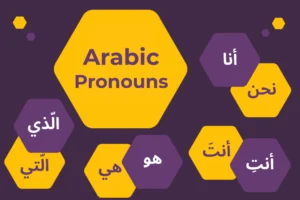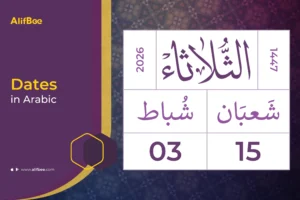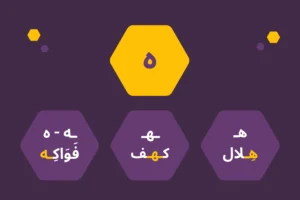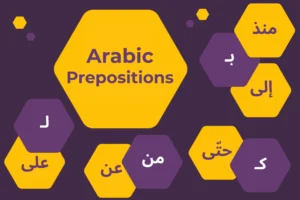Arabic Phone Vocabulary
Welcome to our comprehensive guide on mastering Arabic phone vocabulary!
Making a phone call in Arabic can be scary, but I’m here to help you.
In this blog, you will learn the essential phrases you need in Arabic to make a phone call successfully, from start to end.
Starting a Call
When making a phone call in Arabic, start with a friendly greeting. Common phrases include:
Hello
Ahlan
أَهلًا
Hi
Marḥban
مَرحبًا
Good morning
Ṣabāḥu alkhayr
صَباحُ الخَير
Good evening
Masāʼu alkhayr
مَساءُ الخَير
You can introduce yourself using:
I am (name)
Ana …
أنا (الاسم)
I am Ahmad.
Ana Aḥmad
أنا أحمد
My name is (name)
Ismi …
اسمي (الاسم)
My name is Maram
Ismi maram
اسمي مرام
If you need to speak to someone specific, say:
Can I talk to (name), please?
Hal yumkinuny alttḥdduthu maʻa (al-ism), min fḍlik?
هَل يُمكِنُني التّحدُّثُ مَعَ (الاسم)، مِن فضلِك؟
Hello, my name is Ahmad. Can I talk to Maram?
Marḥaban, ismy aḥmad. hal yumkinuny alttḥdduthu maʻa Marām?
مَرحَبًا، اِسمي أحمَد. هَل يُمكِنُني التّحدُّثُ مع مرام؟
Answering a Call
Respond to a call with a greeting and, if needed, identify yourself:
Hello, I am (name)
Ahlan, Ana …
أهلًا، أنا (الاسم)
Hi, (name) here
Marḥabā, maʻak
مَرحَبًا، معك (الاسم)
Then you can continue the conversation with a question:
How are you?
Kayfa ḥāluk?
كَيفَ حالُك؟
How can I help you?
Ayyu khidmh?
أيّ خِدمة؟
Example:
Hi, Ahmed here. How are you?
Mrḥaban, maʻaka Aḥmad, kayfa ḥāluk?
مرحَبًا، معك أحمد، كَيفَ حالُك؟
Ending a Call
To politely end a call, use phrases like:
Well, I should go now.
Ḥsnan, yajibu an adhhaba al-ān
حسنًا، يَجِبُ أَن أَذهَبَ الآن
I was pleased to talk to you, but I need to go.
Surirtu biālḥadythi maʻka wlkin yajbu an adhhab.
سُرِرتُ بِالحَديثِ مَعكَ، ولكِن يَجبُ أن أذهَب.
Express gratitude and say goodbye with the following phrases:
Thank you so much for the call.
Shukran jazylan limkālmtk
شُكرًا جَزيلًا لِمُكالَمَتِك
Goodbye
Mʻa alsslāmah
معَ السّلامَة
Until we meet again
Ilá al-Liqāʼ
إِلى اللّقاء
Let’s look at the complete sentence:
Well, I was pleased to talk to you. Thank you so much for the call goodbye.
Ḥsnan, surirtu biālttḥaddthi maʻk, shukran jazylan llmkālmh, maʻa al-Salāmah
حسنًا، سُرِرتُ بِالتّحَدّثِ مَعك، شُكرًا جَزيلًا لِلمُكالَمة، مع السَّلامة
Handling Miscommunication
If you don’t understand something while speaking to someone on the phone, you ask for clarification using the following expressions:
Can you repeat what you said, please?
Hal biāstiṭāʻatika tikrāru mā qulta, law samḥt?
هَل بِاستِطاعَتِكَ تِكرارُ ما قُلتَ، لَو سَمحت؟
Sorry. I didn’t hear you well.
ʻAfwan, lam asmaʻk jyydan
عفوًا، لَم أَسمَعك جيّدًا
Sorry, I didn’t understand.
ʻAfwan, lam afhm
عَفوًا، لَم أَفهم
Tips for Arabic Phone Conversations
-
Speak Clearly: Articulate words distinctly, as Arabic has many sounds that can be easily misunderstood without visual cues.
-
Use Formal Arabic (Fusha) or Dialect as Needed: Be mindful of whether the conversation requires Modern Standard Arabic or a specific dialect, adjusting your speech accordingly.
-
Repeat Key Points: Arabic often uses repetition for emphasis; repeat important details to ensure clarity, especially when giving instructions or information.
-
Practice Arabic-specific Intonation: Arabic has unique intonation patterns; mastering these can help convey the right emotions and questions.
-
Regular Practice: Familiarize yourself with Arabic idioms and expressions commonly used in phone conversations. This can help in sounding more natural and fluent.
-
Be Mindful of Cultural Norms: Understanding cultural nuances, such as appropriate greetings and polite expressions, can enhance the conversation and avoid misunderstandings.
With these essential Arabic phone phrases and tips, I’m sure you’ll navigate phone calls with ease and confidence.
You can read more blogs with useful everyday phrases here.
Enjoy your phone calls in Arabic, and don’t forget to download our app for further practice.








